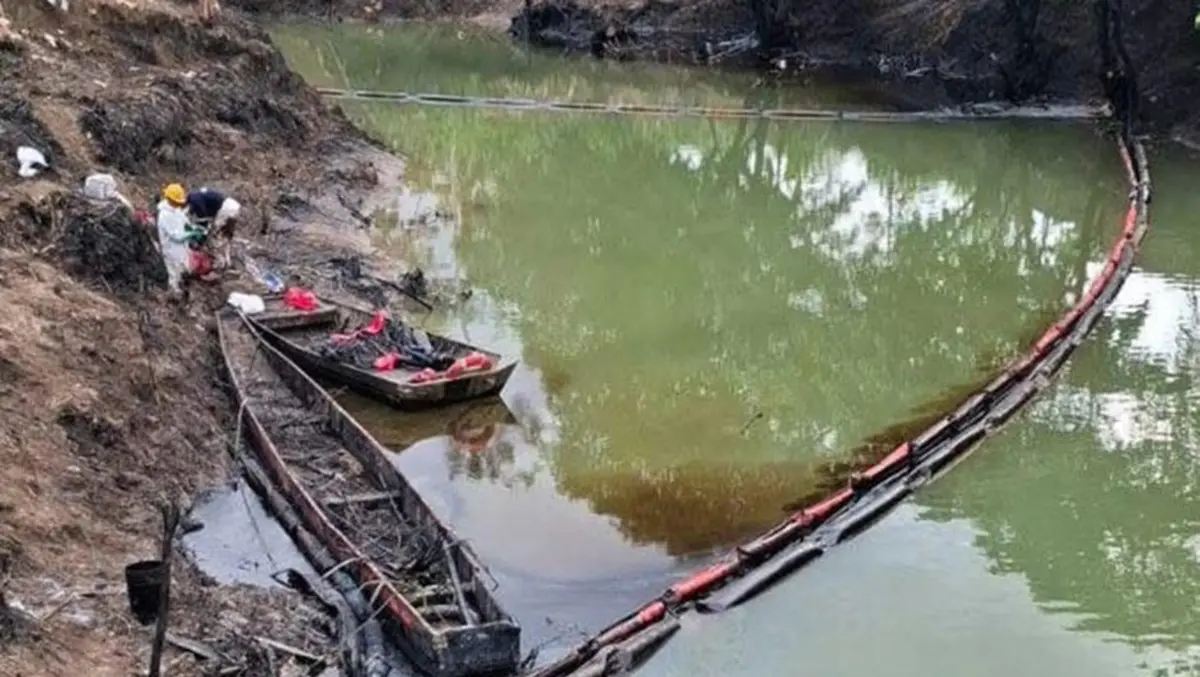Greenpeace Warns of Environmental Impacts from EU-MERCOSUR Agreement

X/ @GreenpeaceEU
December 6, 2024 Hour: 1:36 pm
The deal will increase trade in pesticides with disastrous impacts on the Amazon and human rights, said Lis Cunha.
On Friday, Greenpeace raised concerns about the negative impacts the free trade agreement between the European Union (EU) and MERCOSUR could have on nature and people.
RELATED:
EU-MERCOSUR Free Trade Agreement Faces Hurdles Before Implementation
By establishing a free trade zone with 750 million consumers, the EU-MERCOSUR agreement encourages the import of highly polluting and health-damaging products that will soon be banned in the European market.
“In practice, it can lead to increased deforestation, as we exchange commodities—often sourced from deforested areas, including the Amazon—for the import of pesticides, automobiles, combustion engines, and plastics,” said Carolina Pasquali, director of Greenpeace Brazil.
“Negotiations surrounding the agreement have been used as bargaining chips to delay and weaken the European Union’s Anti-Deforestation Law, which could be a critical mechanism to regulate trade and ensure that commodity production does not come at the expense of deforestation,” she added.
Pasquali also highlighted that beyond its socio-environmental impacts, the agreement would significantly undermine industrialization and the creation of skilled jobs in Brazil and across MERCOSUR.
Greenpeace further warned that the new free trade agreement would severely affect industrialization and the generation of qualified employment in Brazil, Argentina, Uruguay, Paraguay, and Bolivia. It also rejected claims that the agreement would benefit Brazil’s agricultural industry in the long term.
“The potential gains for large-scale farmers will not outweigh the devastation and imbalance caused to our ecosystems,” said Camila Jardim, Greenpeace’s International Policy specialist. She stressed that Brazil would find it harder to meet its commitment to ending Amazon deforestation by 2030.
Thais Bannwart, Forests spokesperson for Greenpeace Brazil, called it “concerning” that the EU-MERCOSUR agreement “contributed to delaying the approval of the EU Anti-Deforestation Law,” as requested by several non-European countries, including Brazil.
After 25 years of negotiations, the EU-MERCOSUR agreement’s final text was concluded at the MERCOSUR summit in Montevideo on Friday. While it includes an annex on “Trade and Sustainable Development,” it does not satisfy environmental activists.
“Twenty-five years of secret talks behind closed doors, repeatedly sidelining public concerns, have resulted in a deal that will increase trade in beef, pesticides, and plastics, with disastrous impacts on the Amazon, the climate, and human rights,” said Lis Cunha, Greenpeace EU trade campaigner.
“It is shameful for EU and MERCOSUR leaders to push ahead with this toxic agreement. We call on all policymakers across Europe and MERCOSUR countries to listen to the widespread public opposition and vote against the deal,” she added.
Following the conclusion of negotiations in Montevideo, the ratification of the EU-MERCOSUR agreement begins a long process that must overcome opposition from several European countries, led by France.
teleSUR/ JF Source: EFE – Greenpeace






